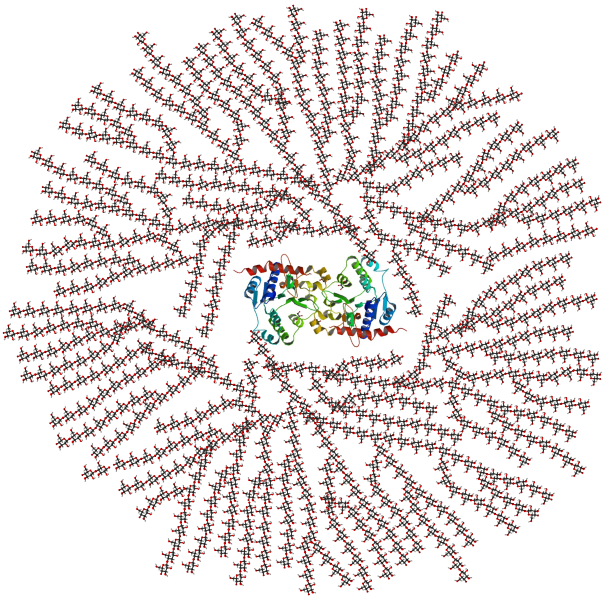glycogen

Glycogen is a molecule that serves as the secondary long-term energy storage in animal and fungal cells, with the primary energy stores being held in adipose tissue. Glycogen is made primarily by the liver and the muscles, but can also be made by glycogenesis within the brain and stomach.
Glycogen is the analogue of starch, a glucose polymer in plants, and is sometimes referred to as animal starch, having a similar structure to amylopectin but more extensively branched and compact than starch. Glycogen is a polymer of α(1→4) glycosidic bonds linked, with α(1→6)-linked branches.
Glycogen is found in the form of granules in the cytosol/cytoplasm in many cell types, and plays an important role in the glucose cycle. Glycogen forms an energy reserve that can be quickly mobilized to meet a sudden need for glucose, but one that is less compact than the energy reserves of triglycerides (lipids).
Schematic 2-D cross-sectional view of glycogen. A core protein of glycogenin is surrounded by branches of glucose units. The entire globular granule may contain approximately 30,000 glucose units.























